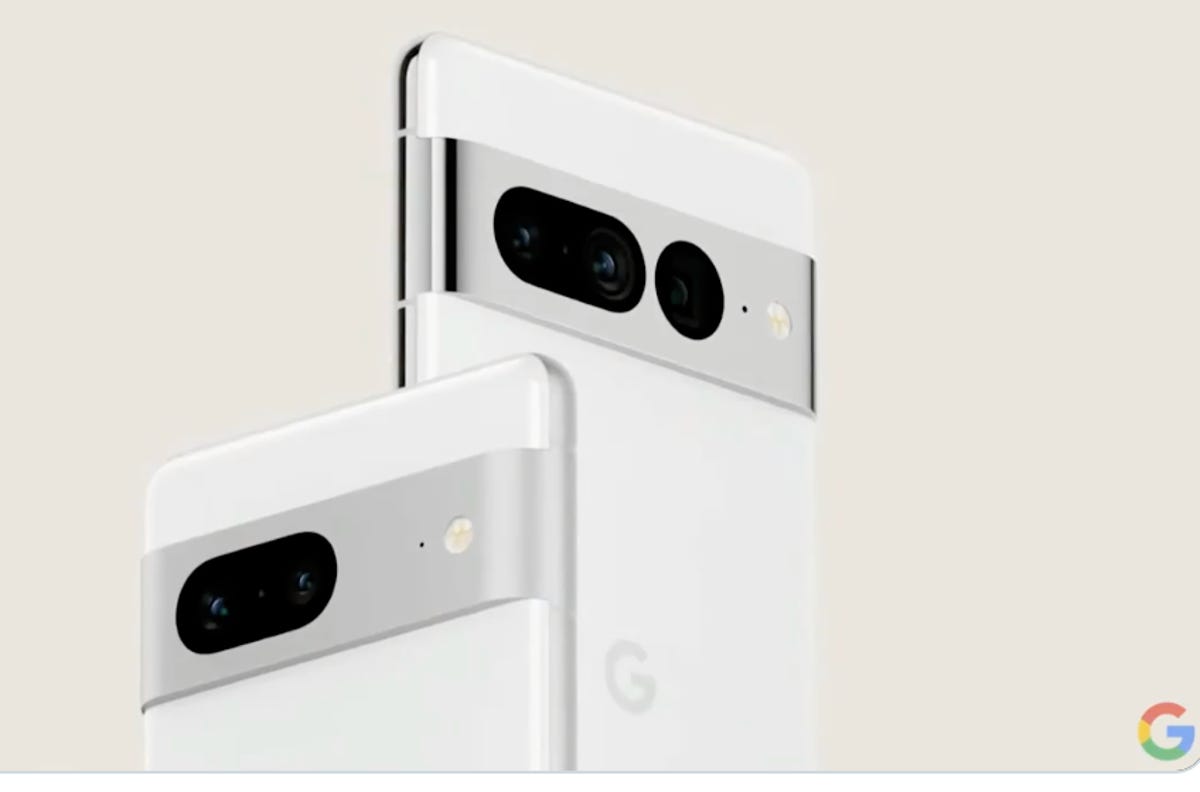Google’s Pixel 7 series is the upcoming successor to the company’s successful Pixel 6 lineup. Google teased the Pixel 7 and Pixel 7 Pro at its annual developer conference in May, giving us an idea of what to expect from the company’s upcoming flagship lineup. Thanks to the announcements made at Google I/O, we know both devices will be launching in the fall with a new version of Google’s Tensor processor, Android 13 and a more refined version of the Pixel 6’s general design.
That said, there’s still a bunch of things we don’t know. But that’s where the rumor mill comes in — to help us fill in the missing pieces (at least some of them) till the official event in the fall. We’d suggest bookmarking this page since we’ll update it whenever we get a whiff of any credible rumors.
Watch this:
The Next Pixels: What You Should Know
10:10
Release date: Pixel 7 will likely launch in October (unconfirmed)
Google’s flagship handsets have launched in October for years, ever since the first-gen Pixel was unveiled to the world. (Well, all of them except for the Pixel 5, which was unveiled at the end of September.) Barring any worsening supply chain issues and other macro factors, it’s probably safe to bet that the Pixel 7 will receive an official launch in October. Leaker Jon Prosser tweeted that the Pixel 7 and 7 Pro will indeed launch that month alongside the Pixel Watch.
Processor: Pixel 7 set to run on second-gen Tensor chip (confirmed)
Google’s in-house silicon, known as the Tensor chip, made its debut in the Pixel 6 series. And Google will continue to pack its phones with its own chips with the upcoming Pixel 7 lineup. It’s set to receive a second-gen Tensor chipset, the company said in May. This announcement isn’t surprising: Google took on the costly and complex task of developing an in-house chipset, so why not use that chipset in its phones?
Some of the enhancements from the chip are evident in the Pixel 6’s camera system, which has new features that aren’t available on previous Pixel devices. These include Magic Eraser for deleting unwanted objects in photos and Real Tone, which portrays skin tones more accurately. Although we don’t know much about the second-gen Tensor chip yet, we can likely expect similar machine learning-based improvements.
![]()
The Google Pixel 6 Pro’s camera bar has a 25mm wide-angle main camera, an 16mm ultrawide camera, a 104mm telephoto camera, and a flash. (from left to right)
Stephen Shankland/CNET
Design: Pixel 7 changes bar and camera cutouts (confirmed)
Last year’s Pixel 6 shook up the design that the last five generations of Pixel phones otherwise held onto. After that design overhaul, Google is simply making refinements to its now signature aesthetic. Remember the black camera bar that runs across the width of the chassis? This year, the bar will be made of recycled aluminum and flows into the device’s side rails, making the camera cutouts more visible. (The Pixel 6 series had a bold black bar that abruptly stopped at the edges).

Google teased its Pixel 7 series at its annual developer event earlier this year.
Google
Design: Pixel 7 to feature a punch-hole front camera (confirmed)
Images shared by Google in May show Pixel 7 will have a pill-shaped camera notch while the Pixel 7 Pro will feature a punch-hole cut out and a pill-box cut out that together form a sort of sideways exclamation point, housing three cameras.
Cameras: Pixel 7 Pro will feature three rear cameras, the Pixel 7 will have two (confirmed)
Google renders show the Pixel 7 Pro will also have a triple rear camera system, like the 6 Pro, while the base Pixel 7 seems to have two rear cameras, like the standard Pixel 6. As far as the cameras go, we don’t have confirmation of much more beyond that, but the pictures seem to show that Google will stick to the configurations of standard wide, ultrawide and telephoto for the Pixel 7 Pro.
Source by www.cnet.com

























